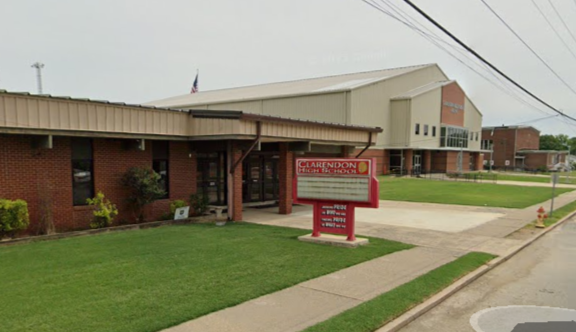
Caleb Hunter Gannon, a 27-year-old football coach at Clarendon High School, located at, has been charged with rape following an investigation into allegations involving a minor. The Arkansas State Police (ASP) formally filed charges on August 11, 2025, after weeks of inquiry, according to 5 News.
The case began on July 30, 2025, when the Monroe County Sheriff's Office requested ASP's Criminal Investigation Division to investigate the claims. Authorities located Gannon on August 10, arresting him during a traffic stop in West Memphis.
Gannon appeared in court the following day, where he was charged with rape and engaging children in sexually explicit conduct for use in visual or print media. A judge set his bond at $3 million. He is currently being held at the Prairie County Detention Center.
Questions remain regarding Gannon’s status with the Clarendon School District. Efforts to contact district officials for comment have been unsuccessful. Updates will follow as new information emerges.

When allegations of sexual assault involve high school coaches, victims and their families often face a complex and emotional path forward. To better understand the legal steps available, Arkansas-based attorney Joshua Gillespie shares his perspective on what victims can do to protect their rights and seek accountability. From criminal charges to civil lawsuits, Gillespie explains the options and challenges these cases present.
Darla Medina (Editor): When cases like this arise, what legal avenues are available for victims of sexual assault, particularly when the accused holds a position of authority like a high school coach?
Joshua Gillespie (Attorney): Victims in such cases have both criminal and civil options to consider. On the criminal side, law enforcement and prosecutors handle the charges, as we've seen with Mr. Gannon being charged with rape and other offenses. Convictions can result in prison time, probation, and being listed on the sex offender registry.
Medina: And on the civil side?
Gillespie: Civil lawsuits allow victims to seek compensation for the harm they've endured. In cases involving a school employee, a victim might also file suit against the school district if there’s evidence of negligence, such as ignoring prior complaints or failing to conduct proper background checks. This can provide financial resources for therapy, medical care, and other needs.
Medina: What challenges might victims face in pursuing these legal options?
Gillespie: One significant challenge is the emotional toll of coming forward. Victims often fear not being believed, especially when the accused is a well-known figure in the community. That’s why having a strong support system, including legal representation, is so important. Additionally, statutes of limitations can limit the time victims have to pursue civil claims, so acting quickly is key.
Medina: Is there anything else victims or their families should consider?
Gillespie: Absolutely. Victims should prioritize their safety and well-being, reaching out to trusted professionals like counselors or victim advocates. Legal action is important, but healing is a process that requires support beyond the courtroom.
Victims and their families deserve to have their voices heard and their rights protected. If you or someone you know has been affected by sexual assault, don’t face this journey alone. Contact us today for a free, confidential consultation, and let us help you explore your legal options and fight for the justice you deserve.
 info@legalherald.com
info@legalherald.com